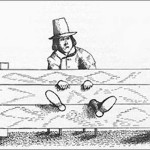A writing student is afraid her manuscript will be rejected if it isn’t “camera ready,” as in perfect. While I don’t believe a great story will be rejected on the basis of a misspelled word, all of us should strive to know the craft. The writing craft includes spelling, grammar and lots of other stuff, as anyone who’s wading into writing quickly learns. Spelling is easily fixed, but how many of you are turned off by mangled spellings or usages? I’d guess editors and agents feel the same way.
Writing Tip for Today: My pet peeves on misspelled/misused words? Here are the ones I see most often:
- separate, often spelled seperate.
- advice/advise. We give advice. We advise others.
- lose/loose. We lose our lunch money. We (let) loose or wear loose (baggy) clothes.
- waist/waste. One of the mean Amazon reviews said my Fence book was a waist of time. I felt better about it knowing the reviewer doesn’t know that a waist is what we wear a belt around, and a waste is just money out the window.
- perscription. Prescription drugs need a doctor’s OK.
- your/you’re. Your house is your home (possessive). You’re (you are) going home today.
- it’s/ its. One is a possessive (dog chases its tail) with no apostrophe. It’s is a contraction for it is.
- break/brake. The glass might break, day breaks. We brake our car, put on the brakes. That’s the breaks!
- hopefully. An adverb (ly word) always modifies. So in, “Hopefully, the race will go on,” a race can’t be hopeful. More correct: “I’m hopeful that the race will go on.”
- decimated. The prefix should give a clue: deci- means a unit of ten. So to say the army was decimated means a tenth was affected. (and don’t get me started on affect/effect!)
Most of these offending misspellings are homophones. Spell checkers don’t know the difference. It’s up to you to learn which word is correct. Get a copy of Strunk & White’s The Elements of Style. As I said, a misspelled word won’t get a fabulous story rejected. But by becoming a student of the craft, you send a signal to pros that you’re a pro, too.
Try This! Be on the lookout for misused homophones (sounds alike, spelled differently) as you read newspapers, magazines and books. How would you feel if a misused homophone made it into print in your work?





The affect/effect one gets me all the time. I just called my son on a word in an email he sent me. Incite vs. Insight.